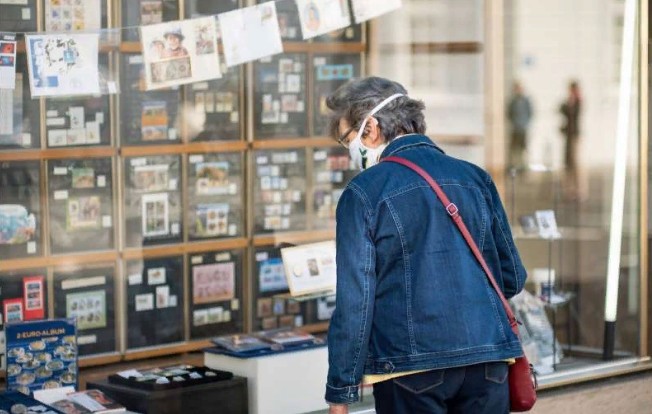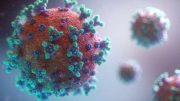Patients are crowding clinics after two years of disregarding medical care, and many of their diseases are now life threatening.
Patients are presenting to local clinics with untreated medical issues that have progressed to dangerous stages now that COVID-19 outbreaks have receded in South Florida.
For Floridians without health insurance or easy access to care, skipping doctor visits and preventative screenings has had particularly negative implications.
Patients must navigate high drug expenses and restricted access to care amid a rush of individuals finally seeking treatment for diabetes, heart disease, and other ailments that have gotten out of hand.
“People are getting back to seeing their providers as the country opens up again, and they are being identified with breast cancer, heart disease, diabetes, high blood pressure, and some of the other things that early detection could have prevented,” said Yolette Bonet, the newly retired founding CEO of FoundCare, a Federally Qualified Health Center that recently opened its seventh clinic in Palm Beach County.
Shevie Brown, 35, had seen a lump in her right breast a few years before the epidemic. However, when the coronavirus spread across the state, Brown said she was reluctant to seek medical help. Her lump expanded in size.
Finally, when the lump became large enough to be seen through clothing in the spring of 2021, Brown went to a FoundCare clinic in Palm Springs to be re-examined. Brown added, “I felt worried because I understood this was about my health.”
Her appointment with an oncologist was set up by the clinic, and she was diagnosed with stage 3 breast cancer.
Brown, who has since undergone surgery and chemotherapy, advises people who have put off seeking medical help to do so as soon as possible. “I wouldn’t be here today if I hadn’t gone.”
According to two polls funded by the Robert Wood Johnson Foundation, one in three Americans delayed or skipped medical care during the pandemic. Furthermore, according to a year-long survey conducted by the Prevent Cancer Foundation, half of all Americans are missing critical cancer exams, with minorities being at higher risk.
However, as the number of cases drops, so does the willingness to seek help.
Rose Philius, a nurse practitioner at the FoundCare clinic in West Palm Beach, had seen 28 patients for women’s health services by lunchtime on a recent Thursday.
Prior to the pandemic, one patient had an abnormal pap smear that was never followed up on. Philius will refer her to an oncologist for a speedy biopsy, worried that the cancer has spread.
“We were never closed,” she explained, “but people were terrified to visit.”
Other variables have also played a role in delayed care, according to Philius. “During the pandemic, some patients lost their employment and their health insurance.” Others struggle with language hurdles and have no one to guide them through the system,” she explained.
According to FoundCare CEO Chris Irizarry, telemedicine has assisted his doctors in reaching residents who are still hesitant and suffering at home with serious medical concerns, but the effort is not yet widespread enough.
“We’re trying to get tablets into households in needy areas so that they can use telehealth more,” Irizarry added. “Some treatment is better than no care at all.” “We want to encourage people to visit our centers, but if they don’t feel comfortable doing so, we want them to at least talk to our clinicians because we understand the value of preventative medicine.”
Dr. Sheridan Major-Moore, clinical director and family medicine physician at Broward Community & Family Health Centers in Hollywood, said the need for primary care is overwhelming at this point in the pandemic.
“Our patients were attempting to avoid contracting COVID, which resulted in a care lapse,” she explained. “They have diabetes that is uncontrolled, as well as high blood pressure…
We had a lot of those incidents before, but now it’s far worse. Because they have been away from care for so long, they have many conditions that need to be addressed when they come in.”
“It’s often like starting over” for patients who already have chronic diseases and haven’t had lab work done in two years, according to Major-Moore. After losing their health insurance, some people stopped taking their drugs completely, she added.
Many people gained weight during the pandemic, she noted, which is a major issue. “Obesity raises the risk of hypertension, heart disease, and a slew of other ailments. We’re expecting that once COVID improves, many of our patients will become more active and eat better again.
Federally sponsored clinics such as FoundCare and Broward Community & Family Health Centers provide medical, dental, and mental health care on a sliding fee system. However, getting an appointment can take many weeks.
Community clinics are increasing their hours and introducing same-day consultations as demand grows. Irizarry of FoundCare says he’s hired more doctors and just launched a new clinic in West Palm Beach.
“We’re taking steps to accommodate demand,” he explained. The number of patients this month is double what it was during the delta wave, and many of the visits were virtual at the time, he said.
While COVID killed more over 70,000 people in Florida, physicians are concerned that untreated medical issues could add to the death toll.
“We need to make it as simple as possible for patients to receive treatment for these conditions,” Major-Moore added. “They were here before in enormous numbers, and they’re here in even greater numbers now.”
Concerns regarding COVID exposure among the last cohort of youngsters to become vaccine eligible have resulted in fewer visits to the pediatrician.
Dr. Tina Carroll-Scott, a pediatrician in Miami, treats largely minority children who are uninsured or on Medicaid. She claims that youngsters are returning after two years of missing appointments.
“I’m dealing with kids who have acute asthma and aren’t on meds, as well as kids who haven’t had immunizations or basic physicals,” Carroll-Scott of the South Miami Children’s Clinic explained.
“We’ve also noticed an increase in mental health and developmental concerns.” There are children on the spectrum who could have benefited from speech or behavior analysis, but instead are dealing with more advanced developmental challenges.”
Carroll- Scott explained that getting her patients caught up on missed checks and screenings requires outreach and hand-holding.
“I believe we will be dealing with the ramifications of coronavirus for years,” she predicted.





